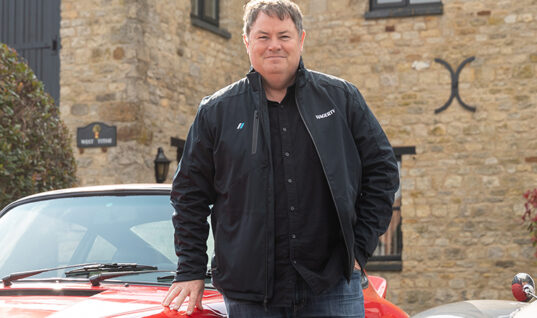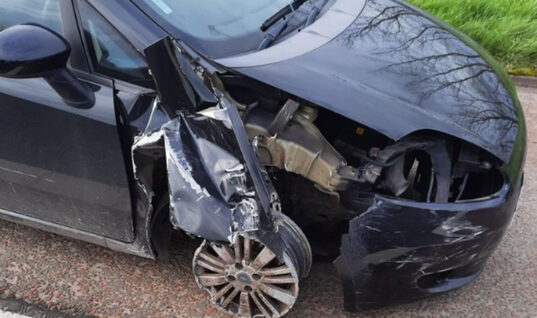Research from a specialist classic and collector vehicle industry report shows that when compared to modern vehicles, classic cars are much less damaging to the environment.
The average classic emits 563kg of CO2 per year, yet an average passenger car has a 6.8-tonne carbon footprint immediately after production.
Conducted by specialist insurance provider Footman James, the Indicator Report shows that two-thirds of classic car enthusiasts are already concerned about climate change, with over 50 per cent open to further benefiting the environment with emissions offsetting schemes.
The 50+ page Indicator Report, conducted by classic and specialist vehicle insurance provider Footman James, suggests that various areas such as diversity and relevance within the industry require some improvement, but also goes on to discuss the environmental impact of classic cars in depth.
Related: UK motorists delay car repairs and maintenance over cost fears
Statistics in the extensive report show that the average classic car – travelling a national UK yearly average of 1,200 miles – generates 563kg of CO2 per year.
In comparison, a typical modern car such as a Volkswagen Golf emits up to 6.8 tonnes of CO2 before it even departs the factory.
The in-depth research study also states that even though a modern car would, in fact, be more efficient and use less fuel if used on a daily basis, the environmental cost of manufacturing a new vehicle immediately negates this.
Additionally, the Indicator Report mentions that battery-electric vehicles have even more of an impact in terms of average carbon emissions footprint than a classic or modern internal combustion engine car.
The fully electric Polestar 2, for example, is said to create 26 tonnes of CO2 during its production process alone – an emissions figure that would take a typical classic car 46 years to match.
Related: One in five cars has over 100,000 miles on-the-clock
This shows that despite the enticing prospect of zero-tailpipe emissions from an electric vehicle, classic cars are far less impactful on the environment long-term due to their infrequent use.
Further data in the report also helps to indicate how classic car owners and enthusiasts feel about their carbon footprint and the effect of driving on the environment in general.
The report features a poll, which shows that two-thirds (66 per cent) of Footman James’ audience are already environmentally conscious and concerned about the effects of climate change.
In addition, over half (52 per cent) of polled audience said they would consider signing up for a vetted scheme to reduce their classic cars’ impact on the environment through carbon emissions offsetting.
Managing director of Footman James, David Bond said: “The Indicator Report is extremely useful in determining how much of an impact our beloved classics have on the environment.
Related: New garage event set to showcase UK aftermarket’s response to vehicle electrification
“It’s easy for one to assume that classic cars are more damaging simply because of their older and less efficient engines, however, the data in this report disproves that theory.
“It’s really about how these vehicles are maintained and used; it is clear that while new modern and electric cars might seem better for the planet day-to-day, the problem is how much of an impact their production causes.
“Speaking to our audience, we’re glad to discover that a substantial portion is concerned about the effects of climate change, and many would sign up for emissions offsetting schemes.
“The future of classic cars is in our hands, and we must do everything we can to ensure they stay on the road.”








Stephen+Malbon+AAE+MIMI
So that I can be clear, I’m not against classics. They have their place and should continue to do so, but sadly this report fails to consider the damage the production of the classic car took in the first place. These vehicles were made when the production processes and waste were not as controlled as today, and energy use inefficiency was king.
Add to that the inefficiency of older engines with pre-electronic control; then I think we would see the tables turn a little.
It would be useful to commission a report on the whole market, which may show how the burdens of production and then the ongoing use may have moved around.
Ronnie
The infrastructure ie the country was sill using coal at the time however Germany still uses it now not the good quality stuff either ( which this country has at least 200 years left ) under our feet they use the dirty Brown coal called lignite and so does most of the world the undeveloped countries global warming or climate change is a hoax when Gordon Brown told everyone to buy a diesel because the polar ice caps were melting how did Jeremy Clarkson drive a Toyota hilux To the North pole ? Can anyone remember Dr David Bellemy ? His last interview said so on the BBC you can find it on YouTube
Jem Bowkett
In the 60s we knew that the environmental impact of making a car equalled 7 yrs of use, so the longer you kept it going, the less its total impact. On that basis, I’ve always had used cars, properly maintained and improved where possible.
Nobody is suggesting opening up the old Morris Minor factory, but I would suggest that anyone buying a Polestar should commit to using it for at least 20yrs.
mitch
that is impossible , after 8 to 10 years they are economicaly totaled , because no one is going to buy a 10k car where they will need to replace a 25 k battery
Paul Michell
I read this article with an air of disbelief. Talk about looking through rose tinted spectacles. I like classic cars & think most deserve to be maintained in good order (not overrestored) & used. However in daily use how can one compare classic car emissions and leaks to modern cars on a mile/ mile basis? When does a modern car become a classic anyway?
Luke
You are comparing apples and oranges. On the one hand you have the emissions to manufacture a modern car and drive it daily. On the other hand you have merely the emissions to drive a classic car infrequently.
To gain any semblance of credibility, you have to firstly include the emissions that were made to manufacture the classic car in the first place. Then you must scale up classic car emissions until it’s making the same yearly mileage as a daily driver. Only then can you begin to start comparing things like-for-like.
Hint: Modern cars make much, much less emissions per mile than classic cars. That’s why cars haven’t had carburetors since 1992 (or 1994 in the US). EVs take it a step further with zero tailpipe emissions, and can be run on solar energy – which again makes zero emissions.
Owen Baldock
I don’t agree, I own a 1936 Ford 8, when I last had it MoT’d I had lower tailpipe emmisions than a first time MoT Fiesta tested the same day.
KM
Some of these comments miss the point entirely. The article is not stating emissions from classic production, as that is in the past and nothing can be done about that. It is stating that from this point forward, continuing to run a classic is considerably less damaging than the production of a new i.c.e car or more specifically an ev. Continued use from this moment onwards of a classic is less damaging than the contribution of a new vehicle to the atmosphere, from manufacturing to running emissions.
Rick
Wow! 26 tonnes of CO2 vs 6.8 tonnes of
CO2. EVs will not help the problem. Perhaps if manufacturers produced a gas-powered car that the average person could drive for 10+ years would be a better solution.